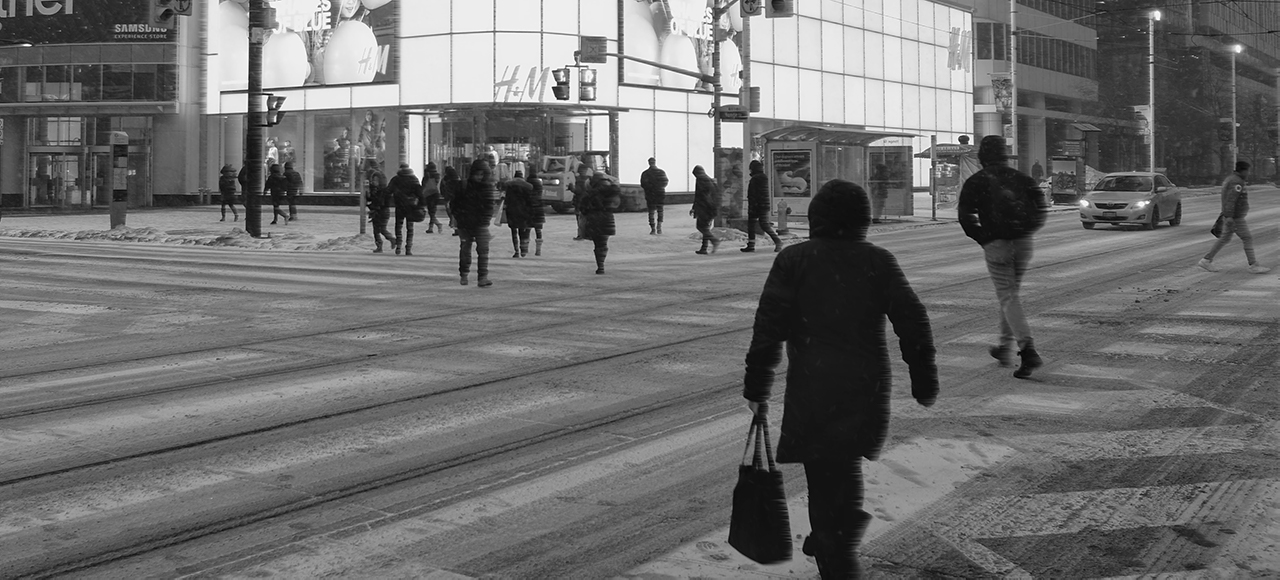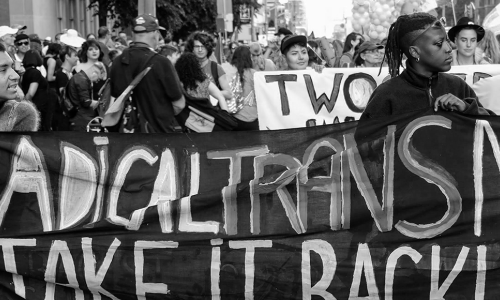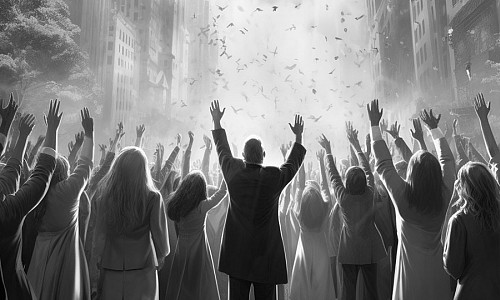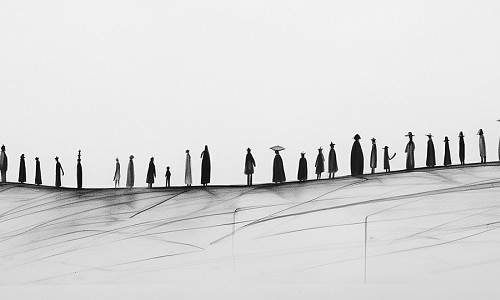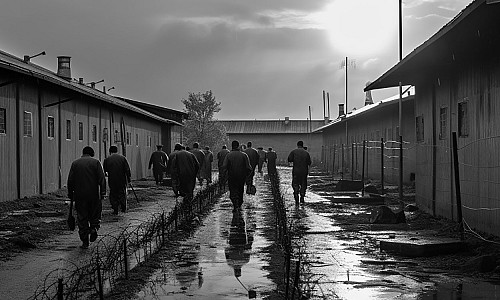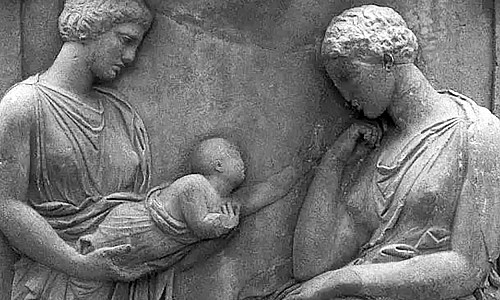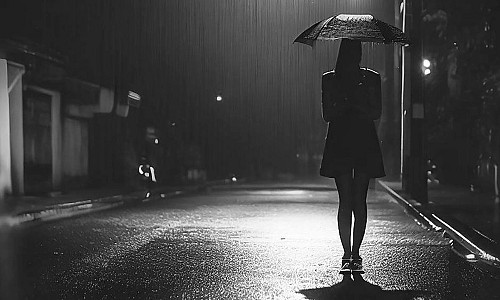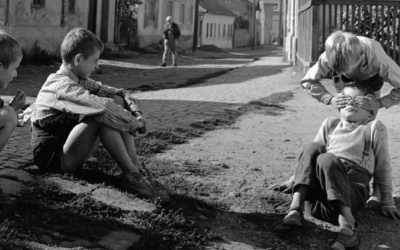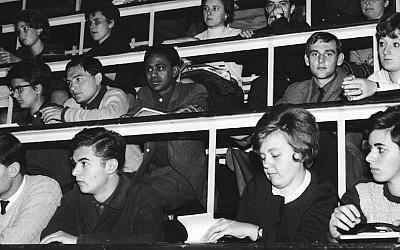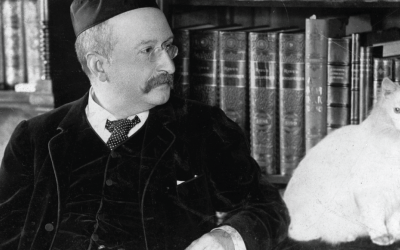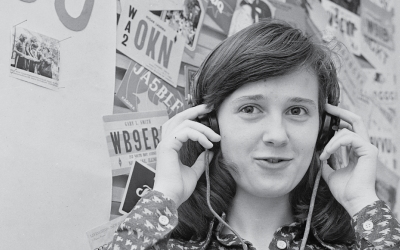Nicholas Whittaker investigates a core assumption of the modern world - that the need to be alone is a necessary feature of human life.
In recent years, calls for the complete abolition of state-sponsored police forces, once at the distant periphery of political discourse, have moved to the center. They challenge us to rethink how social and political life is shaped and regulated. An important element of this challenge is a recognition of the bizarre ways in which these armed state employees are used. When, that is, do people call the cops? When they feel like they’re in danger, sure; but when do people feel like they’re in danger?
Recall, after all, that the past five hundred years have been spent perfecting and propagating mythologies about the profound dangers certain groups of people, such as black folks, pose to social order. The oft-repeated (not often enough) reminder that the American police system was developed in part to police slaves is a particularly sharp point of emphasis. What is policed and how has never been neutral. It has always been formed by and for structures of – often evil, always brutal – power. In other words, “danger” is no natural or obvious category; it is one subject to the manipulations of political systems and ideologies. People call the cops when a neighbor is too loud; when they see a group of black people assembled in a public park (for a picnic); when an unhoused person is asleep on the subway; when someone is talking too loud and too frantically on the street; when protestors are marching; and so on. Do these incidents rightly deserve the label “dangerous”?
Critiques like these are, at this point, familiar enough. But I want to focus on a particular way in which the politicized notion of danger is used, one that deserves more careful philosophical attention than it has received. This use of danger frequently mobilizes the police; more often, it drives us to act as police in our everyday lives. This is the perceived danger of what the philosopher Denise Ferreira Da Silva calls affectability: the power of the simple and brute presence of other human beings – their bodies, their smells, their noise – to affect us. The modern world is a world in which we are, too many of us, involved in the practice of ensuring the minimal possibility of being so affected by others.
The official New York City website, in a section titled “Noise from Neighbor” urges citizens to call the NYPD on their neighbors “to report fighting, screaming, gunshots, explosions, noise from a large party or crowd that is causing danger, or suspicious breaking of glass or wood.” We are told to be wary of instances where the presence of other human beings – their noise – seems to indicate the possibility of danger. But this apparent justification peters out as the section continues: “You can make a complaint about noise from your neighbor including loud music or television, talking, and moving or dragging of furniture... Officers from the New York Police Department (NYPD) will respond within 8 hours when they are not handling emergencies. They will be able to take action if the noise is still happening when they arrive.”
This is more than a promise of protection from dangerous others; this is a promise of protection from the sheer presence of others, regardless of their danger. That is, merely making noise at a level that impacts another is an offense, something deserving of police regulation. This is just one example of the deep-rooted presumption that we can, and should, expel others from our sphere of life simply because they affect us. We bedeck our cities with windowsill spikes and hostile bench designs to ensure that no one has to see an unhoused person sleeping in a park or on the street; we glare and swap subway cars if a street performer enters; we move to suburbs where we can go a whole day without seeing another living soul.
The notion of the individual, an essential element of modern life, lies at the core of this presumption. We take each human unit to be sacrosanct in its isolation, to have full control and ownership of its sphere of life, not just at an ideological or political level (with established rights like freedom of speech or association) but at a sensuous, physical level. The most basic kind of private property – the home – is a perfect spatial metaphor. Individualism takes each human being – like the homes, the properties within which we reside – to be fundamentally and at its purest removed from others, enclosed behind barriers that exclude others. Of course, private homes are more than a metaphor for this notion of social life; they are a consequence of it, a perfect way in which we, rather than residing in common, are promised the right to be alone.
What the police are protecting in the NYPD mandate quoted above is the right of each of us to be alone, to exclude others from our space when we do not wish them to be there. Again, the precise point is that this right exists independent of any danger or harm these others may pose. This is a right to call a notoriously violent and unjust state institution to discipline someone simply for being too loud – that is, simply for not letting us be alone. This is a logic that insists on the necessity and desirability of policing the sensuous being of others: their sound, their smell, their flesh.
The notion that we ought to be able to regulate others’ presences – indeed, the very notion that this presence is undesirable and disturbing – is near-inescapable in modern life. Near; for a certain intellectual tradition, gaining new academic ground in recent years, asks us to reconsider it. Animated by this tradition (what Fred Moten, following Cedric Robinson, calls the black radical tradition), I urge us all (including professional philosophers) to begin to develop an ethics of being alone.
Black radical investigations into the ethics of being alone are radical in part because they question the assumption that the need to be alone is a necessary feature of human life. Rather than beginning by asking whether one should or should not have a right to be alone, and a right to police intrusions into one’s solitude, we begin with the questions: What, at the level of emotional and psychological experience, is this need to be alone, such that we take it for granted and enshrine it in an implicit right. Why do we have this need at all? These questions are particularly pressing when we consider how much philosophical, psychological, and psychiatric literature is concerned with our need not to be alone. Many have argued that our identity as human beings is rooted in our sharing the world with others. Why, then, is modern life simultaneously so built around isolation? Why does the sensuous presence of others seem to threaten us, and why can’t we imagine living differently?
Here, it is important to pay close attention to the way our regulation of our loneliness is, as I’ve suggested, sensuous. What we try to regulate is not simply the presence of other people as an ideal or in the abstract, but their ability to affect us with their fleshiness, to intrude upon our sensory, aesthetic experience of the world. Take, for example, a movie theater, packed to the brim with audience members. Most of us don’t see this as a threat to the carefully cultivated sense of individuality and regulated affectability we hold dear: so long as everyone remains quiet, limbs pulled tight within their enclosed chair space. But now imagine hearing someone whisper a few rows above you; or imagine that the person next to you keeps brushing your foot with their own; or imagine that the person in front of you is wearing a particular pungent aftershave. What may have been an unobjectionable situation now, for many of us, becomes untenable and infuriating. An abstract embrace of social life often coexists with the regulation of the sensuous consequences of that social life. It is not “people” that we wish to escape; it is the noise and scent and physical feel, the fleshy funk, as Ashon Crawley puts it, that accrues like grimy residue to these noble companions we claim to share a world with, that disgusts us.
In order to understand why this sensuousness so appalls us, an ethics of being alone must consider the way certain social formations are enriched or empowered by this need to be alone. That is, we cannot presume that such an aversion is simply natural. The notion of “personal space” may seem essential to human life, but its shape, its conditions of permeation, and rules governing its protection demonstrably shift through time and culture. Forgetting this gives up the ghost too quickly. As Simone de Beauvoir argued in her landmark text The Second Sex, social formations often attempt to retroactively justify their existence by insisting that their consequences are, in fact, their cause. Antiblackness uses low income rates in black communities, the products of historically antiblack policies and social structures, to justify further antiblack policies and social structures. Or, to use Beauvoir’s example, the lack of formal education in white, European women (who are implicitly Beauvoir’s population of concern) was taken to be evidence of those women’s intellectual inferiority, which was then used to justify patriarchal ways of life, despite the fact that such patriarchal ways of life, rather than any innate inferiority, are the true cause of the educational gap in question.
An ethics of being alone, then, must refuse to be hoodwinked. Rather than starting with the assumption that being alone is intrinsically desirable, or that the sensuousness of others is intrinsically undesirable, it asks: who or what benefits from, or requires, or causes, this particular understanding of social life? Black radical pursuits of such an ethics focus, for example, on the way antiblackness, and racial hierarchy and categorization in general, depends on a particularly violent and fascistic policing of the sensuous presence of others. Many of the cases of police brutality and harrassment directed towards black Americans that have circulated in recent years have started with white people calling the police on black folks who were talking too loud. Meanwhile, a more robustly class-focused analysis might note that the discouragement of fleshy sensuousness encourages certain models of production and consumption: like suburbs, or private transportation.
Finally, such an ethics must ask the normative question: how can and should we experience and live with the sensuousness of others’ presences? When I hear my neighbors’ music blasting through my apartment, or smell the unhoused person sitting across from me on the subway, or feel the breath from the person standing behind me at a concert, how ought I feel? Are my disgust and distancing natural or justified? Or ought I search for, to turn again to Crawley, otherwise possibilities of social relation, other ways to feel while sharing space?
Such an investigation must not, of course, give up the ghost too quickly. While I have tried to sketch real reasons that one might be suspicious of our need, and “right,” to be alone, real reasons to accept or protect solitary life might also exist. Recently, Kevin Quashie, following theorists like Audre Lorde, has tried to draw attention to the productive power and ethical importance of black loneliness (or “oneness”). The ability to retract from an antiblack public world, to carve out, if you’ll forgive me, “a room of one’s own,” is often a powerful and lovely tool of black existence; and for many of us experiencing injustice, violence, and evil in this world. An ethics of being alone also must intersect with the insights of disability studies, to consider the way disabilities that involve sensitivity to sensory materiality in general, or to the presence of others, deserve not admonishment but understanding. If attention to such nuances allows us to see beauty and importance in some forms of being alone, it also allows us to get a sharper picture of the deeply ugly and undesirable kinds of loneliness that serve to generate the violent act of policing, in all its forms.
Philosophers need to ask what the need to be alone is a need for, what social structures and practices it sustains, and what other possibilities of living together exist. The essence of an ethics of being alone must be an interrogation of, and openness to reimagining, the model of human life that insists that each of us serve as a sovereign nation, an enclosed realm, policed by border patrols on the scent for the faintest whiff of human funk. The emotional and aesthetic underpinnings of everyday life, of our everyday dispersal into the public, must be a concern for philosophy. After all, what is ethics, if not the study of how to live with other people? – not merely as abstract ideas, but as earthly realities.
Nicholas Whittaker is pursuing a PhD in philosophy at the City University of New York, Graduate Center, with publications (released and forthcoming) in Journal of Aesthetics and Art Criticism, Film and Philosophy, and various magazines and literary publications. Their interests include philosophy of art, black studies, and the way the two challenge central tenets in ethics, ontology, and epistemology.
You might also like...


